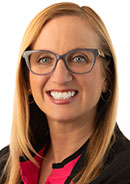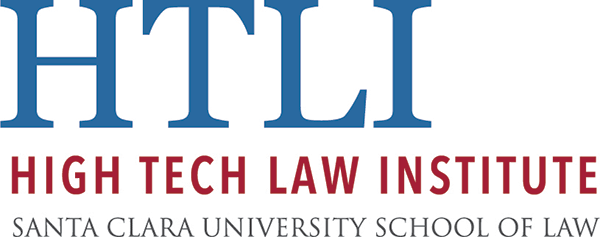Diversity and Inclusion in Inventorship & Innovation
The High Tech Law Institute provides leadership and scholarship
to increase diversity and inclusion in innovation and inventorship.
Background of the SUCCESS Act and Subsequent Reports
In 2018, Congress passed The Study of Underrepresented Classes Chasing Engineering and Science Success (SUCCESS) Act of 2018 which directed the Under Secretary of Commerce for Intellectual Property and Director of the U.S. Patent and Trademark Office (USPTO), in consultation with the administrator of the Small Business Administration, to prepare study and report to Congress on the number of patents applied for and obtained: (1) by women, minorities, and veterans; and (2) by small businesses owned by women, minorities, and veterans. Furthermore, the Act directed the USPTO to provide legislative recommendations to increase the number of women, minorities, and veterans who participate in entrepreneurship activities and apply for patents.
After conducting studies which included hearings and submissions of written comments, the USPTO submitted the SUCCESS Act report to Congress on October 31, 2019 which included findings, outlined USPTO initiatives, and made legislative recommendations to Congress for increasing the participation of women, minorities, and veterans as inventor-patentees and entrepreneurs: One of the most comprehensive studies focused on women inventor-patentees is “Progress and Potential: a profile of women inventors on U.S. patents,” a report published by the USPTO in February 2019.
High Tech Law Institute Affiliated Contributions
Santa Clara Law professors, students and staff are supporting the research and studies ordered by the SUCCESS act in a number of significant ways, including: submitting legislative comments, academic publications, development of independent studies, speaking engagements and other ongoing activities. Santa Clara Law was one of the first law schools to become a supporter of the Increasing Diversity in Innovation Diversity Pledge, a commitment by some of the world’s leading companies to working to understand and address the issue of underrepresented inventors.
The following is a summary of some of the output that is proving to be important in raising awareness of the issues and proposing potential solutions to increase diversity and inclusion in inventorship and innovation.
 Associate Clinical Professor Laura Norris is the Co-Director of the High Tech Law Institute, Director of the Entrepreneurs’ Law Clinic and Director of the Tech Edge JD program at Santa Clara University. In collaboration with Senior Clinical Professor Mary Fuller, Interim Managing Director of the High Tech Law Institute, Joy Peacock, and Santa Clara Law Tech Edge J.D. student Sydney Yazzolino, the team published an “insanely practical” manual of best practices for increasing diversity in innovation, intended to be a valuable tool for in-house intellectual property and innovation managers. The study was conducted in collaboration with the United States Patent Office (“USPTO”), who assisted in kicking off the study by populating 6 roundtable sessions with highly innovative, industry agnostic, companies from around the nation.
Associate Clinical Professor Laura Norris is the Co-Director of the High Tech Law Institute, Director of the Entrepreneurs’ Law Clinic and Director of the Tech Edge JD program at Santa Clara University. In collaboration with Senior Clinical Professor Mary Fuller, Interim Managing Director of the High Tech Law Institute, Joy Peacock, and Santa Clara Law Tech Edge J.D. student Sydney Yazzolino, the team published an “insanely practical” manual of best practices for increasing diversity in innovation, intended to be a valuable tool for in-house intellectual property and innovation managers. The study was conducted in collaboration with the United States Patent Office (“USPTO”), who assisted in kicking off the study by populating 6 roundtable sessions with highly innovative, industry agnostic, companies from around the nation.
You can follow updates on the project on Professor Norris’s Medium site.
Professor Norris participated at the “Increasing Diversity in Innovation: Capturing America’s Lost Innovations” Conference on July 28, 2021, as the moderator of the “Lessons Learned from the Front Lines” panel. HTLI was also a co-sponsor of the conference.
 Professor Colleen Chien, Co-Director of the High Tech Law Institute, primarily focuses her scholarship on patents and intellectual property. Professor Chien was formerly a senior advisor for President Obama’s Office of Intellectual Property and Innovation. Her academic research leverages her background in technology, law and public service, often taking a data-driven approach. Professor Chien is particularly interested in solving inequality gaps in the patent system.
Professor Colleen Chien, Co-Director of the High Tech Law Institute, primarily focuses her scholarship on patents and intellectual property. Professor Chien was formerly a senior advisor for President Obama’s Office of Intellectual Property and Innovation. Her academic research leverages her background in technology, law and public service, often taking a data-driven approach. Professor Chien is particularly interested in solving inequality gaps in the patent system.
Professor Chien provided oral and written comments to the USPTO in response to the Success Act:
She has also authored several scholarly articles and blog posts after the the publication of the SUCCESS Act and the report by the USPTO:
Inequalities, Innovation and Patents, Santa Clara Univ. Legal Studies Research Paper No. 2018-03, Posted April 9, 2018, revised November
Rigorous Policy Pilots the USPTO Could Try, Iowa Law Review.
“Advancing Inclusive Innovation and Entrepreneurship through the Patent System”, Patently-O, November 3, 2020.
Professor Chien also co-authored a blog post with several of her students, Jonathan Collins, Zachary J. Daly , and Rodney Swartz, PhD. The post is fourth in a series about insights developed based on data released by the USPTO and provides analysis relating to the topic of diversity in innovation. The blog provides an excellent overview of the issues with links to relevant sources, including her own scholarship.
Comments of Santa Clara Law Students to the National Strategy for Expanding American Innovation , February 23, 2021
Professor Chien participated at the “Increasing Diversity in Innovation: Capturing America’s Lost Innovations” Conference on July 28, 2021, as speaker on the Advocating for Change panel. HTLI was also a co-sponsor of the conference.
 Professor Eric Goldman, Associate Dean of Research, co-director of the High Tech Law Institute and director of the Privacy Law Initiative, and Santa Clara Law Tech Edge J.D. student, Jess Miers, provided comments to the SUCCESS Act Congressional inquiry on revising the degree requirement regarding sitting for the patent bar. The comments argued that removing some of the technical requirements for the patent bar would increase diversity.
Professor Eric Goldman, Associate Dean of Research, co-director of the High Tech Law Institute and director of the Privacy Law Initiative, and Santa Clara Law Tech Edge J.D. student, Jess Miers, provided comments to the SUCCESS Act Congressional inquiry on revising the degree requirement regarding sitting for the patent bar. The comments argued that removing some of the technical requirements for the patent bar would increase diversity.
Boosting Patentee Diversity By Relaxing the Technical Barriers to Patent Bar Membership. Comments regarding the Study of Underrepresented Classes Chasing Engineering and Science (SUCCESS) Act, Docket No.: PTO–C–2019–0010, June 30, 2019.
